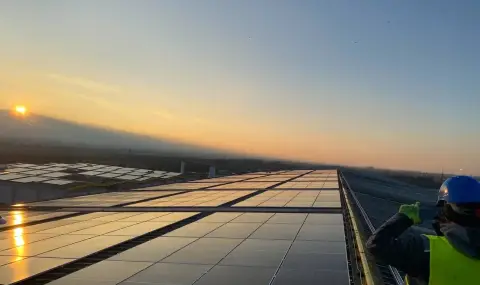The installation of a grid-connected photovoltaic system for the self-consumption of the Sofia Waste Treatment Plant (SWTP) has been completed. This is part of the strategic efforts to optimize costs and minimize the carbon footprint of the plant.
The system is built from 3356 photovoltaic modules with a capacity of 1862 kWp/hour. Its operation is expected to reduce the SWP's electricity costs by about 5 thousand leva per day or 1.8 million leva per year. The energy produced will be used entirely for our own needs and will contribute to achieving a zero carbon footprint, as part of the Sofia Municipality's efforts to reduce greenhouse gases by 30% by 2030. after the capital city joined the 100 climate-neutral and intelligent cities of the future.
“The installation of the system began in November, after renegotiation of the terms of the contract between the Sofia Municipality and the contractor, which resulted in a reduction of nearly half a million leva in the total cost”, said Nadezhda Bobcheva, Deputy Mayor of Sofia for the “Green System, Ecology and Land Use”.
The photovoltaics are installed on the roofs of the existing buildings in the enterprise, do not affect elements of the National Ecological Network and do not have a negative impact on the health and cultural heritage of the region.
The construction of the system with optimized conditions for its implementation is part of the systematic approach of the Vasil Terziev administration to rehabilitate municipal enterprises. In 2024, the SPTO reported an increase in revenues by 195%. Revenue from the sale of recyclable materials has increased from 496,777 BGN in 2023 to 1,464,000 BGN in 2024. The quality of the service is also improving, which has brought the inherited waste crisis in the capital under control.
